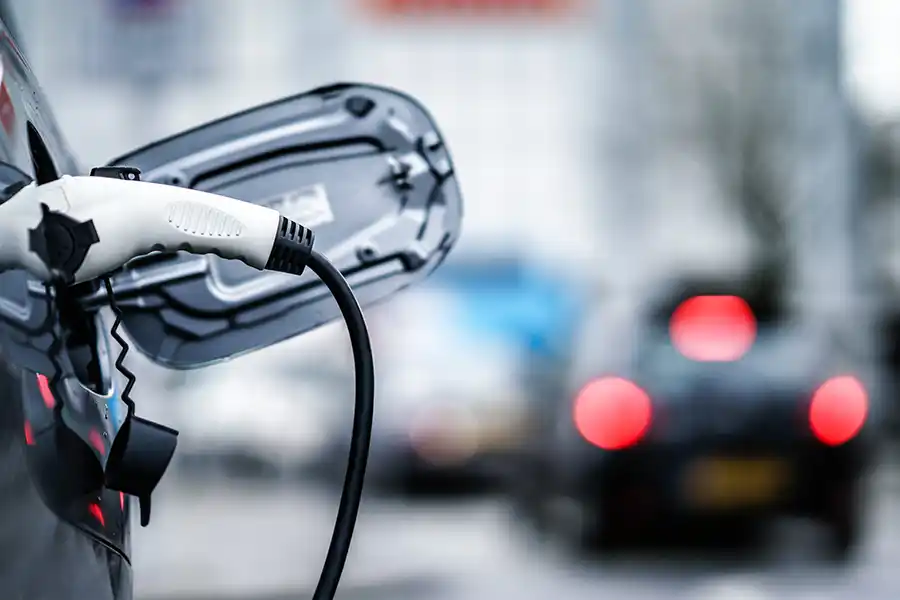S h a r e
The date may have changed but the direction of travel remains certain


Posted by
Andy Bruce
September 2023
It was certainly disappointing to hear that the Government’s ban on the sale of new petrol and diesel cars is to be moved back from its original cut off date of 2030 to 2035.
Certainly it must be frustrating for those who have invested heavily to meet the 2030 deadline – fleets, car makers, infrastructure suppliers, the training of after sales technicians and so on.
But I understand the point that not everyone is fully ready for such a change, that a more fully developed used market for electric vehicles (EVs) would be more advisable, and that commercial vehicle fleets, in particular, are struggling to decarbonise at the same pace thanks to a combination of product availability and concerns about product suitability.
More broadly, it also aligns the UK with the EU ban on the sale of new petrol and diesel cars.
So where does that leave us?
Actually, I would argue that there is no real change, little actual deviation from the original course we were on.
The Environmental, Social and Governance (ESG) agenda remains key to most businesses in the UK, and that means fleet decarbonisation.
Company car drivers remain heavily incentivised to switch over to electric through generous personal tax allowances.
Companies save on fleet operating expenditure thanks to the better whole life costs of EVs.
Meanwhile salary sacrifice offers an ideal way for companies to provide electric cars to all its staff at a personal cost to employees that is far lower than if they were to lease an EV personally, while benefiting from the far cheaper running costs of EVs.
And those cash for car allowance drivers, finding that their allowance doesn’t reach to the level of car it once did under a personal lease, are now either returning to the company car with an EV, or taking up the offer of a salary sacrifice electric car.
So nothing changes the underlying structural reasons that have underpinned an already significant move to electrification – 53% of new cars supplied by leasing companies are zero emission vehicles according to the BVRLA.
And crucially, one of the key mechanisms to deliver zero emission vehicles is the Zero Emission Vehicle mandate, which requires car makers to sell an increasing percentage of zero emission cars. That commences 2024 with a 22% mix required and ratchets up thereafter (although we must be cautious about this – the Government could, as a result of its date change, alter the details of the mandate, too).
Then there are the car manufacturers themselves.
The car makers have invested millions in switching technologies and have structured production to meet electrification demands with an increasingly EV-led product range. Ford, for example, plans to be all-electric by 2030; Jaguar will relaunch as an all-electric brand in 2024; half of all BMW deliveries by 2030 will be electric; 100% of all Volvo deliveries will be electric by 2030; and so on.
As a business we remain fully focused on providing fleet electrification and planning to meet our EV100 commitment of electrifying our managed fleet of 30,000 vehicles by 2030. Our own Fleet Alliance company car fleet went fully electric in mid-2021.
So we remain fully focused on our customers, helping them through the process of fleet electrification, or providing an increasing number of companies with our salary sacrifice product – HFD Group being the most recent example.
And while Rishi Sunak mixes what many will see as political expediency with electrification proportionality, we’ll continue – unwavering – on our current direction of travel: and that’s electric.
You also might like…
If you liked this article then check out our posts about similar topics
We do the Salary Sacrifice thinking for Mortgage Brain
The people at Mortgage Brain spend all day working on mortgage technology to help intermediaries and lenders, so when th...
First Drive: New Tiggo 8 Is A Chery Worth Picking
Why it matters The Chery Tiggo 8 is one of the most talked-about new arrivals in the UK In just four months, the brand ...
When “Good Enough” Fleet Management Stops Being Good Enough
Every year, UK organisations talk about efficiency, governance and value for money Yet behind the board reports and b...
A New Year’s Resolution for Smarter Fleet Management
Every January, businesses everywhere make the same promises: cut costs, simplify operations, do more with less But if...
2025 Wrapped: My First Year as a Fleet Alliance Appointed Representative
As 2025 draws to a close, it feels like the right time to pause, take stock, and look back on my first year as an Appoin...
FRED 82: Turning a Compliance Challenge into a Fleet Opportunity
FRED 82 may look like just another accounting standard, but for organisations running sizeable vehicle fleets, it repres...
Budget 2025 – the key points for fleets and EV salary sacrifice drivers
The 2025 Budget confirms what many in the fleet and salary sacrifice world have been expecting for some time: as electri...
Best company cars to beat BIK in 2025/2026
Sales of electric cars to fleet and business customers continue to head the new car market in 2025 After four months,...
Ready to make the management of your fleet more efficient?
Request a call back
